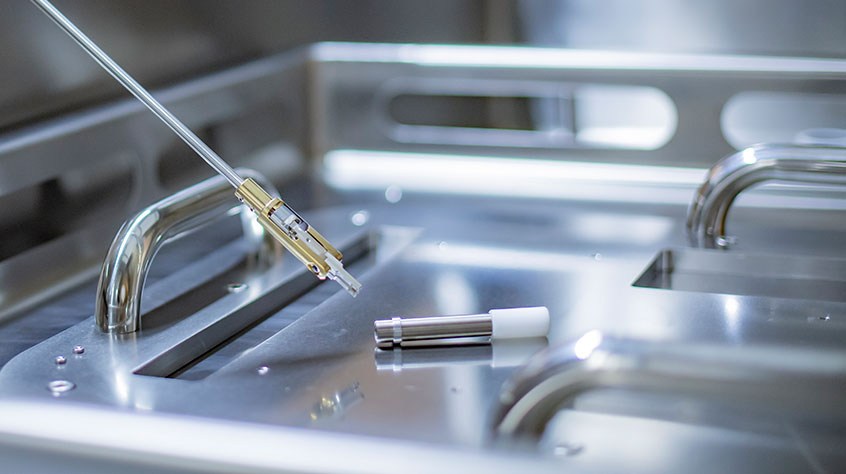Hunting the silent killer
Crucial research into new ways of detecting and monitoring cancer is being led by Professor Jacqui Shaw at the University of Leicester, through the development of liquid biopsies or blood based tests.
Liquid biopsies, may help to detect cancer at an early stage, and see how well a patient is responding to their treatment. In addition, the tests may help provide a quicker diagnosis, potentially eliminating the need for invasive biopsy procedures. Professor Shaw's research team has shown that these blood tests can show when a cancer is coming back up to 2 years before scans.
The process involves conducting tests on a sample of blood to look for cancer cells that have escaped from a tumour and for pieces of DNA from tumour cells that are circulating in the blood and monitoring these over time.
Currently, research is underway for tests to detect and monitor the most common cancers including breast, bowel and lung cancer, and results of Professor Shaw’s latest study, which is looking at blood tests for detecting early breast cancer in about 3,000 women, are expected this year.

Our work in Leicester is mostly focused on breast cancer. One approach checks for common mutations in cancer genes. If a woman has several of these mutations in a blood test, that's an indication she may have cancer. We hope that blood tests will become a useful tool for monitoring breast cancer and implemented in the NHS in the future to help with routine care. It is likely that there won't be a single approach but a 'multi-marker' blood test that proves to be the most effective tool for detecting and monitoring cancer.
Professor Shaw is Co-Director of the Institute for Precision Health (IPH), which brings together the research expertise and facilities of the University of Leicester and University Hospitals Leicester NHS Trust with industry to advance new medicines and medical technology innovations.
In collaboration with Professor RC Coombes at Imperial College, Professor Shaw leads an integrated programme of clinical and translational research between the two universities funded by a Programme grant from Cancer Research UK. She also works with Professor Charles Swanton as part of the landmark TRACERx national trial analysing genetic changes in the tumours of non-small cell lung cancer patients from diagnosis and through their treatment.
Professor Shaw also leads the cfDNA advisory group for the 100,000 Genomes project led by Genomics England and sits on a number of advisory boards and editorial boards of international scientific journals.





